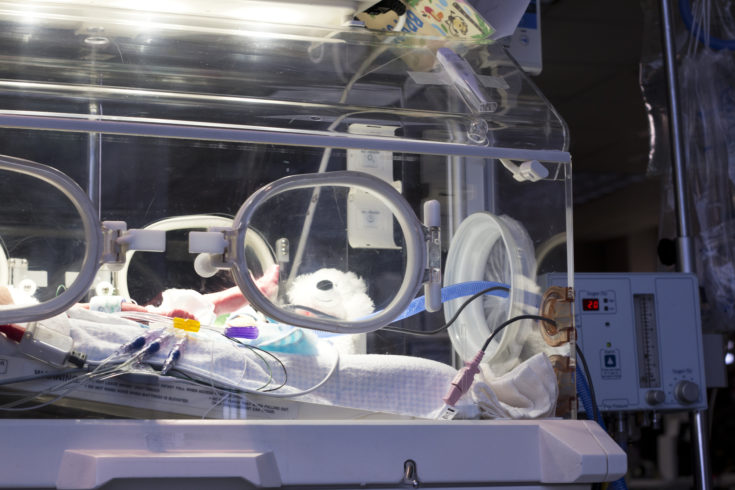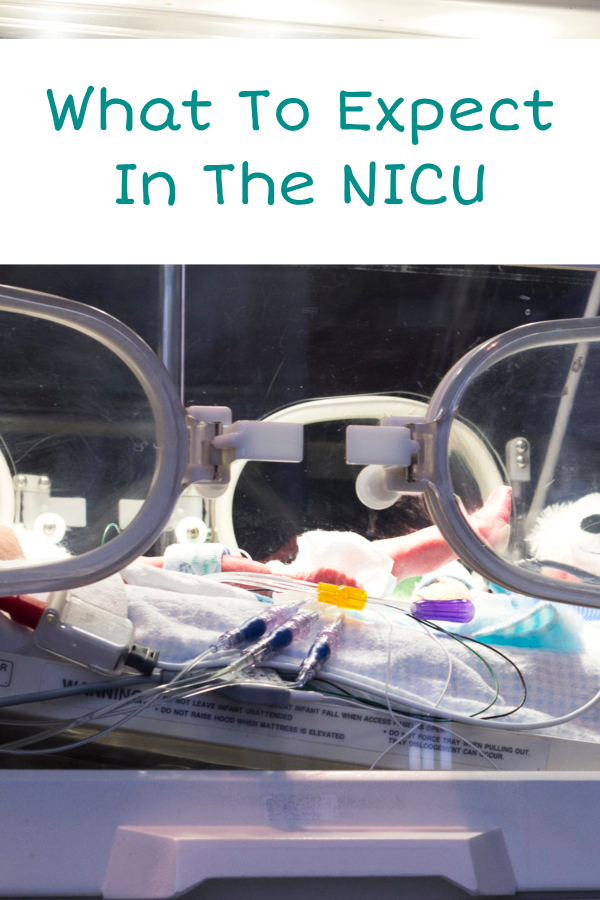Disclosure: This post may contain affiliate links, meaning we get a commission if you decide to make a purchase through our links, at no cost to you. Please read our disclosure for more info.
The Neonatal Intensive Care Unit (NICU, pronounced “nick-you”) may become your home-away-from-home if your baby is born prematurely. This is the section of the hospital tasked with caring for infants who are born early and cannot survive without help. It provides an environment that is safer for your preemie, offering incubators and special services intended to keep your baby warm, fed, and isolated from potential infections. With a highly-trained staff of doctors and nurses as well as access to specialized equipment, the NICU offers your infant the best chance to continue developing until he can survive without aid. In short, the NICU could give your baby the best chance at life. But what can you expect once your preemie has been delivered?

It all depends upon how early your child is born, the level of development, and the particular challenges he is facing. In general, you should expect that you may not be able to engage in direct contact with your baby. Because the risk of infection is so great with premature infants, they often have to be kept in enclosed incubators for anywhere from several days to several months. In addition, they might be hooked up to a variety monitors (hearth-rate, breathing, etc.) as well as oxygen and feeding tubes. So you should be prepared for the fact that you might only be able to touch them through gloves attached to the incubator. At the very least, you will have to undergo sterilization and wear a mask and gown when visiting.
Of course, over time, you will be able to enjoy more contact with your child, but likely your first interactions will take place with at least some level of separation. This can not only be stressful for parents, but for the child as well. Seeing your baby undergoing any number of medical procedures in the first stage of life (not to mention the daily struggle to live, complete with any number of wires attached to your child’s body) can be extremely difficult, as can the many hours spent in the NICU, away from friends and family.
As for your baby, he will be subject to an environment that is filled with the bustle of nurses and parents, potentially noisy machinery, and constant lighting (many preemies undergo phototherapy for jaundice, and the ward must be kept well-lit in case of emergency). In addition, they will have to deal with poking, prodding, and medical procedures that constitute your child’s treatment. In other words, they will have to deal with extreme stressors without the aid of normal touch-based bonding that most babies require in the beginning of life.
While seeing your infant in the NICU can be hard, you should know that it’s for the best. As recently as 60 years ago, babies born prematurely would have had only a very slim chance for survival. The advent of the NICU has probably saved the lives of millions of babies since its inception. While you can certainly anticipate a hard road when your preemie goes into the NICU, you can also expect a whole staff of caring individuals dedicated to keeping your baby alive, as well as the best equipment and procedures currently available.

